Vasectomy is a minimally invasive surgical procedure that aims to provide permanent contraception in men. This method, which is preferred by millions of men worldwide, is known as a reliable and effective contraceptive method. A vasectomy prevents sperm cells from mixing with semen by cutting or blocking the sperm-carrying ducts (vas deferens) in the male reproductive system, thus eliminating the risk of pregnancy. In this article we have written for you, we will try to give information about what vasectomy is, how effective it is, and how it is applied.
- What Is Vasectomy?
- How Effective Is Vasectomy?
- How Is Vasectomy Performed?
- Who Can Have Vasectomy?
- What Are The Advantages of Vasectomy?
- What Are The Disadvantages of Vasectomy?
- Is Vasectomy Reversible?
- What Are The Risks of Vasectomy?
- What Are The Side Effects of Vasectomy?
- Vasectomy Treatment Prices in Turkey
- What Happens to a Man When He Gets a Vasectomy?
- Immediate Post-Procedure
- Resuming Activities
- Effectiveness of Vasectomy
- Sexual Function and Sensation
- Potential Risks and Complications
- How to Prepare for a Vasectomy?
- Can a Man Still Have a Baby After a Vasectomy?
- Reversal Options
- Conclusion
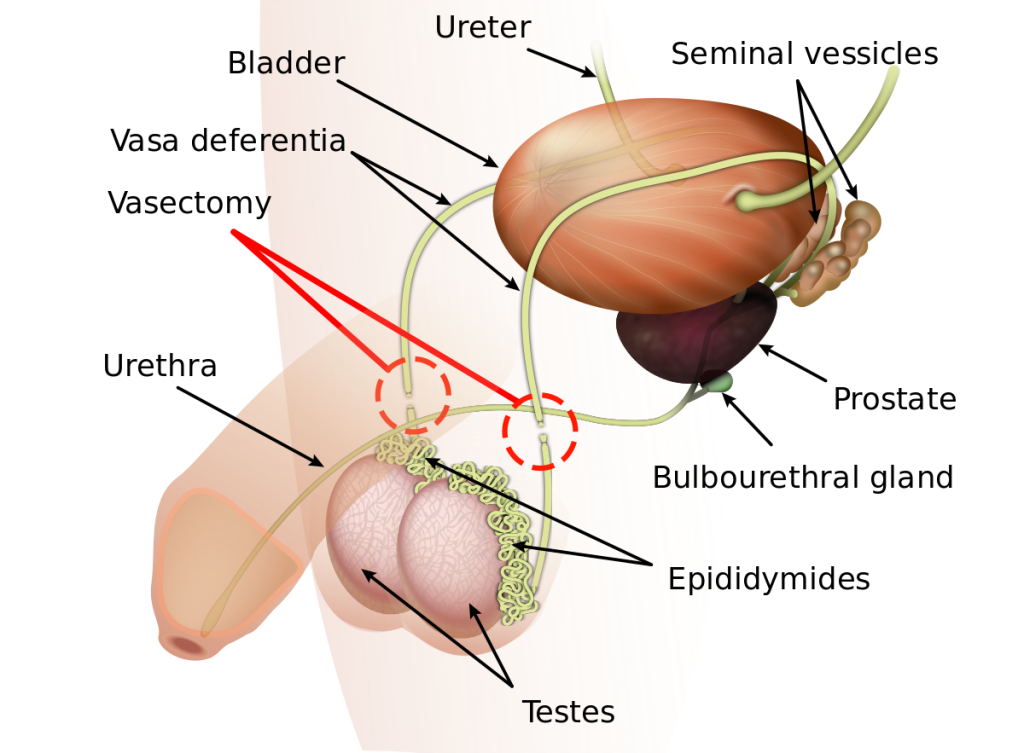
What Is Vasectomy?
Vasectomy is considered a surgical sterilization method in men. During the procedure, two tubes called vas deferens, which carry sperm cells in the male reproductive system, are cut or blocked. This procedure prevents sperm cells from entering the semen, thus preventing fertilization and pregnancy. Vasectomy provides permanent birth control for men and is more reliable and effective than other contraceptive methods.
How Effective Is Vasectomy?
Vasectomy has one of the highest success rates among birth control methods. The success rate of the procedure is over 99%. However, for the procedure to be effective, a certain period must pass after vasectomy and the sperm count must be checked. In the first 3 months after the procedure, it is recommended to use another contraceptive method, as sperm cells may not have completely disappeared. Sperm tests performed after the procedure can confirm that the vasectomy was successful.
How Is Vasectomy Performed?
Vasectomy is usually performed under local anesthesia and takes about 20-30 minutes. During the procedure, the surgeon makes a small incision or hole in the skin of the male genitalia called the scrotum. The vas deferens tubes are then pulled out through this opening, cut and tied, or blocked. This prevents sperm cells from entering the semen and thus prevents pregnancy. After the procedure, the skin of the scrotum heals on its own, usually without the need for stitches.
Although vasectomy is a reliable and effective method of contraception for men, it should be considered a permanent method, even if the procedure is reversible. Therefore, it is important for men considering vasectomy to consider their future desire to have children before undergoing this procedure.
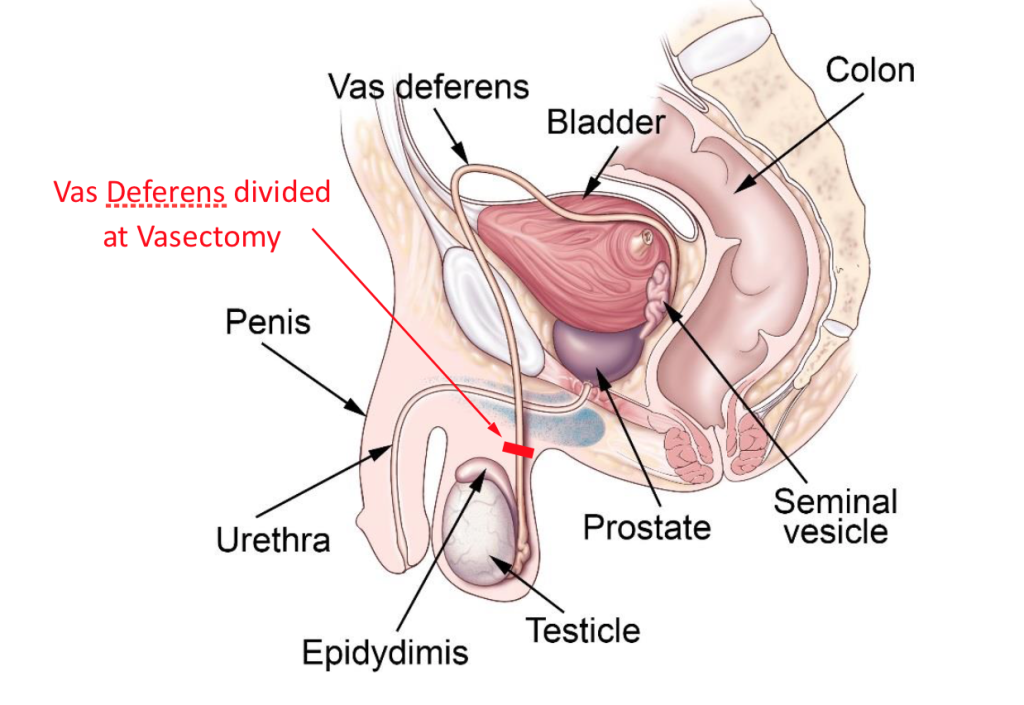
Who Can Have Vasectomy?
Vasectomy is a permanent birth control method for men. This procedure prevents sperm cells from coming out by cutting or blocking the ducts that produce and transport sperm. In this way, men lose the ability to conceive during sexual intercourse. Vasectomy can be a suitable option for men who do not want to have children for various reasons. The situations where vasectomy can be applied are as follows;
- Couples who think that the number of children available is sufficient,
- Risk of transmission of genetic diseases,
- Spouse’s health problems,
- Men who have sexual intercourse outside intercourse,
- Sensitivity to other methods of contraception,
What Are The Advantages of Vasectomy?
Vasectomy has many advantages as it is a permanent birth control method for men. The advantages of vasectomy can be listed as follows;
- The success rate of vasectomy is more than 99%. This is one of the highest success rates among birth control methods.
- Vasectomy provides a permanent method of birth control for men. This means that couples do not need other methods of contraception if they do not want to have more children.
- Vasectomy is usually a safe procedure with a low risk of complications.
- Vasectomy is a quick and simple procedure that usually takes about 30 minutes. Patients can return to their normal lives in a short time after the procedure.
- Vasectomy does not affect the sexual life of men. There is no change in sexual functions such as erection, orgasm and ejaculation.
What Are The Disadvantages of Vasectomy?
Although vasectomy has many advantages, it also has some disadvantages. The disadvantages of vasectomy can be explained as follows;
- Since vasectomy is a permanent contraceptive method, this may cause problems if men’s decision to have children in the future changes. Although vasectomy is reversible, the success rate is low and it is a costly procedure.
- In rare cases, complications such as infection, bleeding, and pain may occur after vasectomy.
- Vasectomy is not an effective birth control method immediately after the procedure. Men should use another birth control method for about 3 months after the procedure.
- Vasectomy does not protect men from sexually transmitted infections. Therefore, men who have sexual intercourse with more than one partner must continue to use condoms.
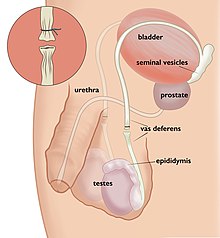
Is Vasectomy Reversible?
Vasectomy is a surgical procedure performed for birth control in men. During this procedure, the vas deferens, the tubes that carry sperm, are cut and ligated. In this way, even if sperm production continues, sperm cannot mix with semen and pregnancy cannot occur. Vasectomy is considered an effective and permanent method of contraception, but in some cases reversal is possible.
Reversal after vasectomy can be achieved with a procedure called vasovasostomy. This procedure involves reconnecting the vas deferens that have been cut and ligated. Vasovasostomy is usually performed with microsurgical techniques and the success rate varies between 40% and 90%. The success rate varies depending on the time since the vasectomy, the surgeon’s experience, and the techniques used.
After a vasovasostomy procedure, couples have an increased chance of pregnancy, but it is not always guaranteed. The chance of pregnancy after the procedure depends on the quality of the man’s sperm and the age and fertility status of the partner. In addition, the vasovasostomy procedure is more complex and costly compared to vasectomy.
What Are The Risks of Vasectomy?
Vasectomy is generally considered a safe procedure, but as with any surgical procedure, it involves some risks. The risks that may occur during and after the vasectomy procedure are as follows;
- Infection may occur in the procedure area. This can be treated with antibiotics.
- Bleeding may occur at the procedure site during or after vasectomy. This usually resolves spontaneously or can be controlled with an additional intervention.
- Regional pain may occur after the procedure. This pain can usually be relieved with painkillers.
- Small, hard nodules are formed by the accumulation of sperm cells leaking from the cut vas deferens ends. They are usually painless and do not require treatment.
- Recanalisation may occur. Spontaneous recanalization of the vas deferens is rare and increases the risk of pregnancy.
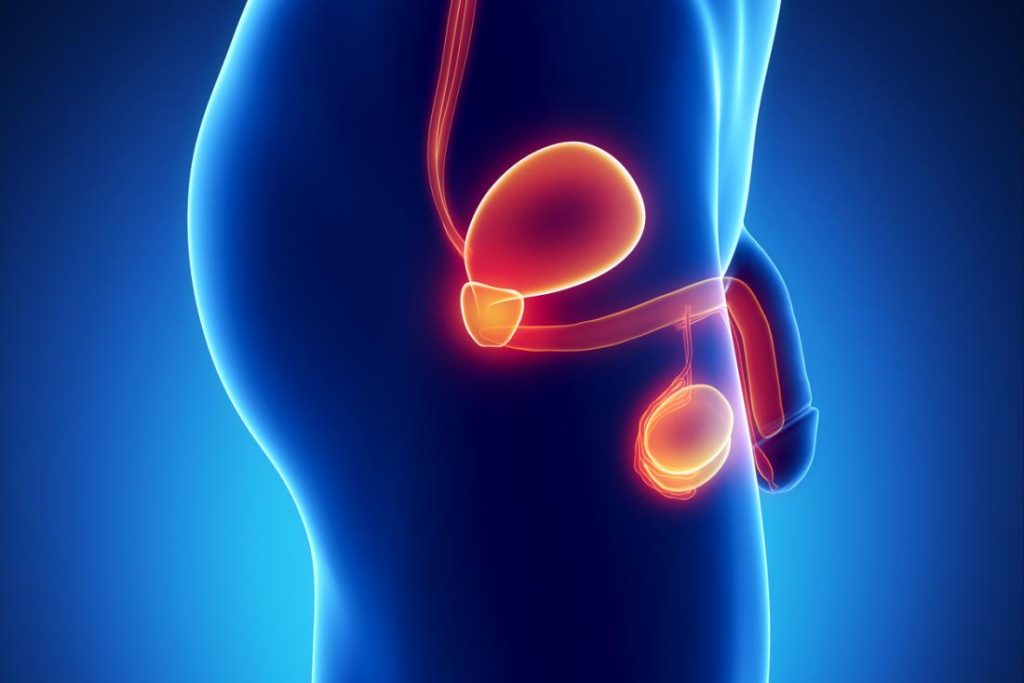
What Are The Side Effects of Vasectomy?
Some side effects may occur after vasectomy. These side effects are usually temporary and resolve within a few days. Side effects that may occur after vasectomy are as follows;
- Bruising and swelling may occur in the procedure area. This usually resolves within a few days.
- Regional pain and tenderness may occur after the procedure. It can be alleviated with painkillers.
- There may be a temporary feeling of warmth in the procedure area.
Vasectomy is an effective and permanent method of birth control. However, having information about its recycling, risks and side effects will help you have a more conscious and comfortable experience before and after the procedure. Therefore, if you are considering vasectomy, it is important to make the right decision by discussing all the details with your doctor.
Vasectomy Treatment Prices in Turkey
Turkey has succeeded in making its name known to the world with its investments and Especially the latest technological devices used in diagnosis and treatment procedures have been a beacon of hope for many diseases. However, there has been an increase in health tourism in Türkiye.
- Hospitals are large, clean, spacious, and fully equipped in terms of technological equipment.
- Turkish doctors are specialized, successful, and skilled in their fields.
- Nurses and carers are friendly and compassionate.
- Finding answers to the questions asked quickly and accurately.
- Patience and understanding of all staff, including the intermediary company dealing with the patient.
- Turkey offers holiday opportunities with its natural and historical beauties.
- Easy transportation.
- Diagnosis, treatment, accommodation, eating, drinking, dressing, and holiday needs can be met at affordable prices.
Such situations are shown among the reasons for preference. We can see that patients and relatives of patients who want to come to Turkey are researching Vasectomy Treatment Prices in Turkey. However, it would not be correct to give clear price information at this stage. Many factors such as the type of disease, stage, diagnosis process, treatment process, and stay in Türkiye affect the price issue. If you want to get more detailed price information, you can contact us. In addition, if you come to Turkey for treatment through us, we can facilitate your visa application process with the invitation letter sent by us to the consulate.
What Happens to a Man When He Gets a Vasectomy?
Typically performed under local anesthesia, a vasectomy involves making small incisions in the scrotum to access the vas deferens. The surgeon then cuts, ties, or seals these tubes to prevent sperm from passing through. The procedure is relatively quick, usually taking about 20 to 30 minutes.
Immediate Post-Procedure
After the vasectomy, you may experience some discomfort, swelling, and bruising in the scrotal area. This is entirely normal and can be managed with over-the-counter pain medication and icing the area. It’s essential to follow your doctor’s post-operative instructions carefully to ensure proper healing.
Resuming Activities
Most men can resume light activities within a few days of the procedure. However, it’s advisable to avoid strenuous exercise or heavy lifting for at least a week to allow the body to heal properly. Your doctor will provide specific guidelines based on your circumstances.
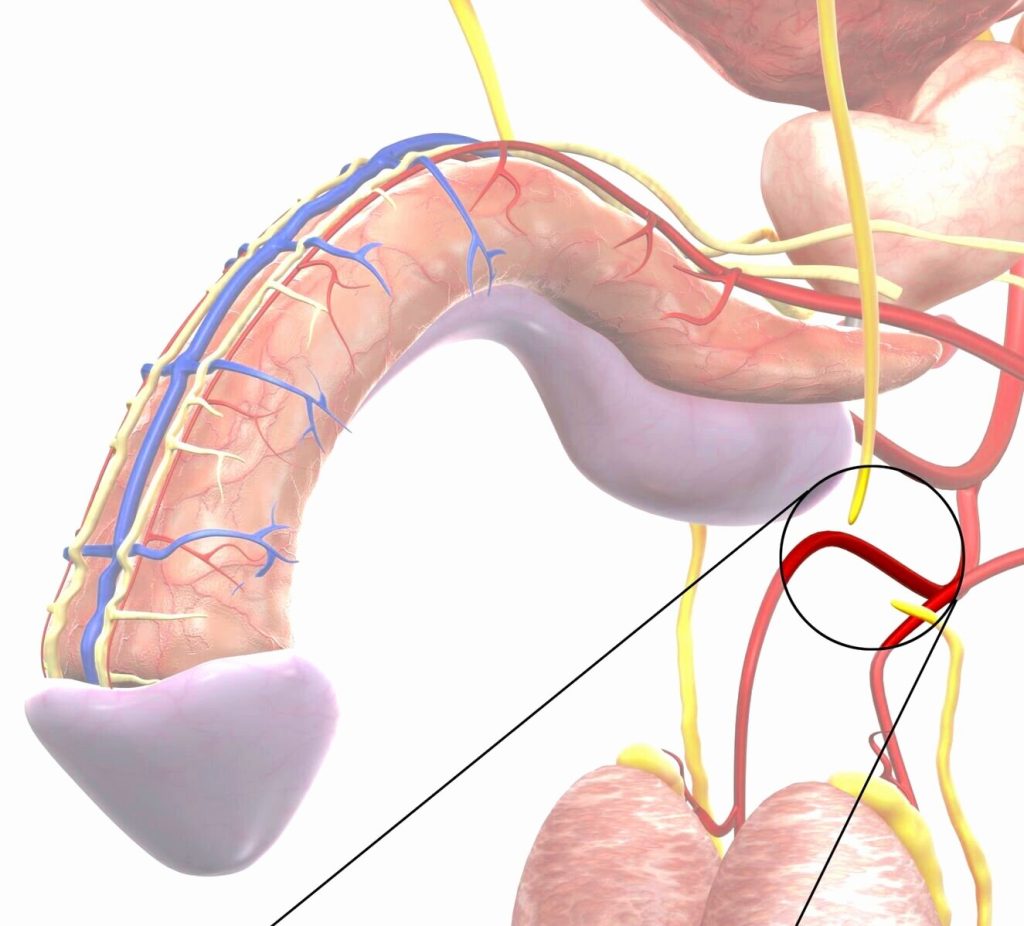
Effectiveness of Vasectomy
While a vasectomy is considered a permanent form of birth control, it’s essential to note that it may take some time for the remaining sperm to clear from the reproductive system fully. Until you receive confirmation from your doctor that you are sterile, it’s crucial to continue using alternative forms of contraception.
Sexual Function and Sensation
One common concern among men considering vasectomy is its potential impact on sexual function and sensation. The good news is that vasectomy does not affect libido, testosterone levels, or the ability to achieve and maintain an erection. You will still ejaculate normally; the only difference is that your semen will no longer contain sperm.
Potential Risks and Complications
As with any surgical procedure, vasectomy carries some risks, including infection, bleeding, and the possibility of sperm leaking into the surrounding tissues. However, these complications are rare, and the vast majority of men undergo vasectomy without any issues.
Getting a vasectomy is a significant decision that can offer long-term benefits in terms of birth control and family planning. By understanding what happens during the procedure and what changes to expect afterward, you can approach the process with confidence and peace of mind. If you have any concerns or questions, be sure to discuss them with your doctor before proceeding.
How to Prepare for a Vasectomy?
Preparing for a vasectomy involves more than just scheduling the procedure. It’s essential to understand what steps you need to take beforehand to ensure a smooth and successful experience. In this guide, we’ll walk you through everything you need to know to prepare for your vasectomy effectively.
Consultation with Your Doctor: The first step in preparing for a vasectomy is to schedule a consultation with a qualified healthcare provider. During this appointment, your doctor will review your medical history, discuss the procedure in detail, and address any questions or concerns you may have.
Considerations Before the Procedure: Before undergoing a vasectomy, there are a few factors to consider:
- Timing: Choose a time for your vasectomy when you can take a few days off from work or other responsibilities to allow for proper recovery.
- Transportation: Arrange for someone to drive you to and from the appointment, as you may not be able to drive yourself immediately after the procedure.
- Support: It can be helpful to have a supportive friend or family member available to assist you during the recovery process.
Pre-Procedure Instructions: Your doctor will provide specific instructions to follow before your vasectomy, which may include:
- Avoiding blood-thinning medications: Certain medications, such as aspirin or ibuprofen, can increase the risk of bleeding during the procedure. Your doctor may advise you to stop taking these medications for a specified period before the vasectomy.
- Shaving the scrotal area: In some cases, your doctor may ask you to shave the area around your scrotum before the procedure to ensure a clean surgical site.
- Fasting: You may be instructed to avoid eating or drinking for a certain period before the vasectomy, particularly if you will be receiving sedation or anesthesia during the procedure.
Preparing Mentally and Emotionally: Undergoing any medical procedure can be anxiety-inducing, so it’s essential to take care of your mental and emotional well-being before the vasectomy. Consider:
- Educating yourself: Learn as much as you can about the vasectomy procedure, including what to expect during and after the surgery.
- Talking to your partner: If you have a partner, discuss your decision to undergo a vasectomy together and ensure that you’re both on the same page.
- Managing stress: Practice relaxation techniques such as deep breathing or meditation to help reduce pre-procedure anxiety.
Can a Man Still Have a Baby After a Vasectomy?
Vasectomy is a common and highly effective form of permanent contraception chosen by many men worldwide. However, despite its popularity, there are lingering misconceptions surrounding its impact on fertility. One of the most frequently asked questions is whether a man can still have a baby after undergoing a vasectomy. Let’s delve into this topic and separate fact from fiction.
Potential for Pregnancy: Immediately after a vasectomy, there may still be sperm present in the reproductive system. It takes time for the remaining sperm to clear out, and during this period, there’s still a possibility of pregnancy. That’s why men need to continue using contraception until a follow-up sperm test confirms the absence of sperm in the semen.

Reversal Options
In cases where a man desires to father a child after undergoing a vasectomy, there are options available. One such option is vasectomy reversal surgery, where the severed ends of the vas deferens are reconnected. However, it’s important to note that vasectomy reversal is not always successful, and the longer it has been since the initial vasectomy, the lower the chances of success.
Alternative Paths to Parenthood: For men who are unable to achieve pregnancy through vasectomy reversal or prefer not to undergo the procedure, there are alternative paths to parenthood. These may include sperm retrieval followed by in vitro fertilization (IVF), where sperm is collected directly from the testicles and used to fertilize an egg in a laboratory setting.
Conclusion
In conclusion, while it’s technically possible for a man to father a child after a vasectomy, it’s not guaranteed, and the process may require additional interventions. Vasectomy remains a highly effective form of contraception with a low risk of complications. However, men considering vasectomy should be aware of their options and discuss any concerns with their healthcare provider.

Vimfay International Health Services